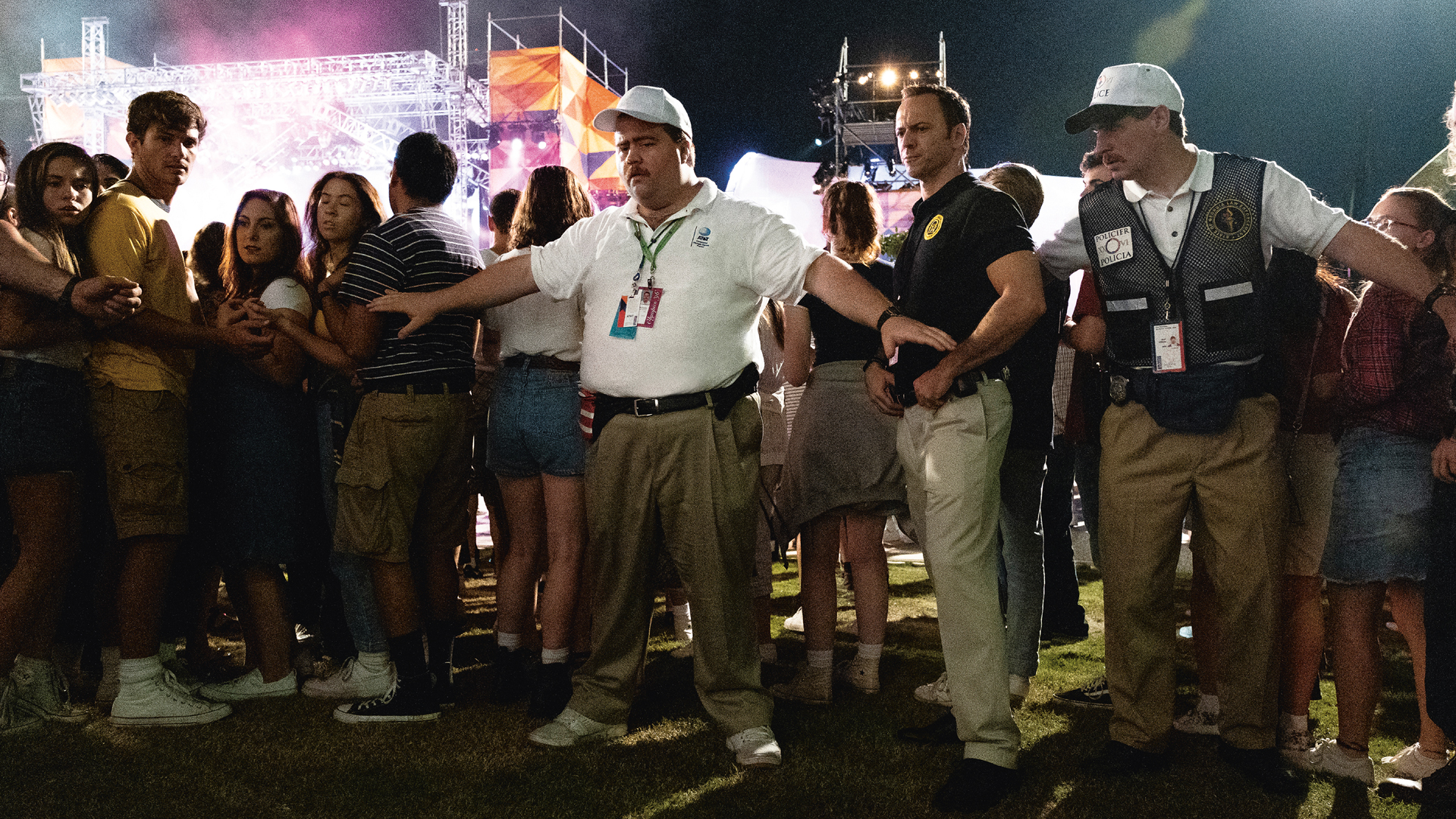In the 1990s hall of USA infamy, Richard Jewell may not be a name as instantly recognisable as OJ Simpson or John Wayne Bobbitt. But in the summer of 1996, Jewell was at the centre of a whiplash-inducing media hurricane. First he was the breakout star of the Atlanta Olympics, a stocky security guard at a crowded celebratory concert who raised the alarm about a suspicious rucksack and initiated an evacuation just before it exploded. The nail-stuffed pipe bomb still killed one bystander and injured over 100 others but without Jewell’s vigilance the body count could have been much higher. Even at a time of tragedy, the local and national news could not resist going big on such a compelling story of hometown heroism.
Then an opportunistic newspaper front page claimed Jewell was being treated as a suspect by the FBI and the feeding frenzy began. Did this schlubby loner who still lived with his mother fit the profile of a duplicitous ‘hero-bomber’, planting the device so he could then revel in the glory of being the one to discover it? Even if you remember Jewell’s name, you may not recall exactly how everything panned out after the initial frenzy, in which case Clint Eastwood’s latest film as director will function as even more of a suspense thriller than a biopic.
Exploring how society – or, more commonly, bureaucrats – treat or judge ordinary people thrust into the spotlight has become a late-career preoccupation for the grizzly old cowpoke. Fans filing into his 2016 hit Sully expecting an unashamedly triumphant retelling of how veteran pilot Chesley Sullenberger successfully ditched his faltering plane in the Hudson river likely came out cursing those goddamn spineless suits at the National Transportation Safety Board, who Eastwood showed questioning Sully’s every move after the fact.
In that instance, things were never in doubt because the subject was embodied by Tom Hanks, our preeminent screen avatar of nobility and wholesomeness. Richard Jewell has a far less familiar face at its centre: he is played by Paul Walter Hauser, who previously had a memorable supporting role as a dim-bulb heavy in real-life figure-skating farce I, Tonya. As played by Hauser, Jewell is a well-meaning but literal-minded jobsworth whose molasses-slow vocal delivery seems to encourage ridicule. He loves video games and guns. Under the investigative spotlight, unhelpful incidents from his chequered past keep cropping up. But Jewell was demonstrably innocent, and the typically straight-shooting Eastwood ensures that is never in doubt. With the recently Oscar-nominated Kathy Bates as his doting mother and Sam Rockwell as his righteous and enjoyably combustible lawyer, it takes very little persuasion to be firmly in Jewell’s corner. Eastwood’s real targets are the FBI and the media, personified by Jon Hamm and Olivia Wilde as the senior agent desperate for a plausible suspect and a local reporter determined to make a splash respectively. While both actors play against their natural charisma, they also seem to be having by far the most fun, whether it is Hamm ruthlessly and sarcastically stitching up his gullible target or the exuberant Wilde going full Cruella de Vil as she runs rings round her exasperated peers.
After a tension-filled opening act leading up to the bombing, Richard Jewell subsequently settles into a queasy holding pattern as the FBI goes through the motions but struggles to make much headway. There are arguably too many scenes of poor Richard stumbling through a bloodthirsty, disorientating media pack, and the 1996 period trappings have an authentic but unappealing gaudiness. But at the grand old age of 89, Eastwood has still crafted a decent portrait of an unfairly maligned everyman.









